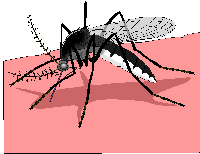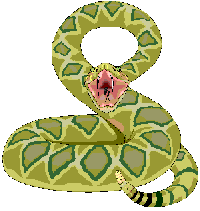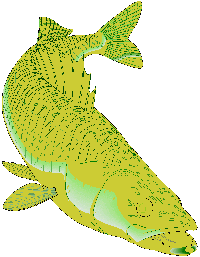| Mosquitos, snakes and other dangers |
 |
 |
Greece is a mosquito playground during the summer. There are billions of them, and they only have one interest: your blood. As soon as the sun starts setting, they appear from nowhere and start driling for their equivalent of oil.
In Greece, mosquitos DON'T carry malaria, so mal�ria tablets are not necessary. Depending on your blood type (if it is sweet or not), mosquitos will either have you for dinner or have your companions for dinner.
There are many ways of combatting them:
- Using Mosquito lotions (many types). They all work well, but putting all of these chemical products on the skin may not be the best idea for you. If you can stand the products on your skin, they may be the best. They are all made with some sort of lemon or lime product that mosquitos naturally detest and avoid.
- Using mosquito nets. Tents are always supplied with netting which should be used every night and closed before nightfall. If you need to open the tent during the night, you should have a mosquito repellant on, otherwise these bugs will find their way in, and destroy the remainder of your otherwise peaceful and tranquil sleep.
- Using natural products such as Essence of Citronelle. This is a thick liquid, like natural oil, that works very well. Remember to put it on in the evening. It will last the whole night and has a very nice side effect: it's a natural perfume.
- Burning sticks. My favorite. You light them and leave them burning inside the tent, placed on their holder put on a plate (not a plastic plate). When you enter the tent, you put the stick outside, and this keeps mosquitos far away from the entrance of your tent. Beware that dry grass doesn't catch fire and ensure they are placed on a plate which is itself placed on rocks. One stick lasts a whole night.
|
 |
Snakes are the nemesis of every Greek. They are afraid of them and they will go out of their way to kill them, especially when a snake is seen crossing the road. It is not unusual to see people in a moving vehicle, crossing sides on a road just to run over a snake!
There is only one type of poisonous snake in Greece: the adder (locally called the Ohi�- shown here at left). It's a small cousin of the rattle snake, brown with a criss cross pattern on its back. It is poisonous and will attack if provoked. In the early summer, adders come out of hibernation and are especially dangerous. The same goes for when they are rearing young, which a mother snake will protect at all costs.
However, snakes are just like the rest of the animal kingdom and are wonderful in that they eat rats, and other rodents that are far worse than snakes.
There are many other types of snakes, including the egg snake (about 2 meters long and black), small grass snakes and others that look dangerous, but are harmless.
To treat a snake bite  , you would have to identify the snake and ensure it is an adder, You then suck up the poison. Only do this if you dont have an open sore in your mouth (otherwise, as you suck up the poison, it will enter your blood stream through your open sore). You can get snake bite kits that contain specially made syringes for this purpose. Snake bites are rarely fatal. , you would have to identify the snake and ensure it is an adder, You then suck up the poison. Only do this if you dont have an open sore in your mouth (otherwise, as you suck up the poison, it will enter your blood stream through your open sore). You can get snake bite kits that contain specially made syringes for this purpose. Snake bites are rarely fatal.
There are also sea snakes, morray eels  and others but they should be left alone. If you do catch one while fishing, then cut its head off, skin it and boil it in water with some olive oil and it makes great food! and others but they should be left alone. If you do catch one while fishing, then cut its head off, skin it and boil it in water with some olive oil and it makes great food!

|
 |
There are other dangers inhabiting the Greek countryside and reef. These include brown bears, huge sea turtles, weever fish (sea image at left), the sea urchin and the seasnake, bears  as well as the stingray which has a poisonous barb on its rear fin. Morray eels co-habit octopus reefs, so if you see an octopus, a morray eel will be around. as well as the stingray which has a poisonous barb on its rear fin. Morray eels co-habit octopus reefs, so if you see an octopus, a morray eel will be around.
Weever fish lie burried in the sand and they will inflict burning pain if trodden on, through a poison in their dorsal fins. They inhabit busy beaches. I caught one once on a busy beach on Mykonos!
Urchins, are lovely, spiky crustacians which are edible (the reddish ones - the black ones are the males and are not edible), which will hurt you if you step over them. Wear plastic sleepers or watch out where you step. If a thorn goes in your skin, pull it out carefully using some oil, or use twizzers. The object is to remove the entire needle (which takes practice!). 
Stingrays also have a dorsal spike with a poison sack so avoid handling them as well.
|
|